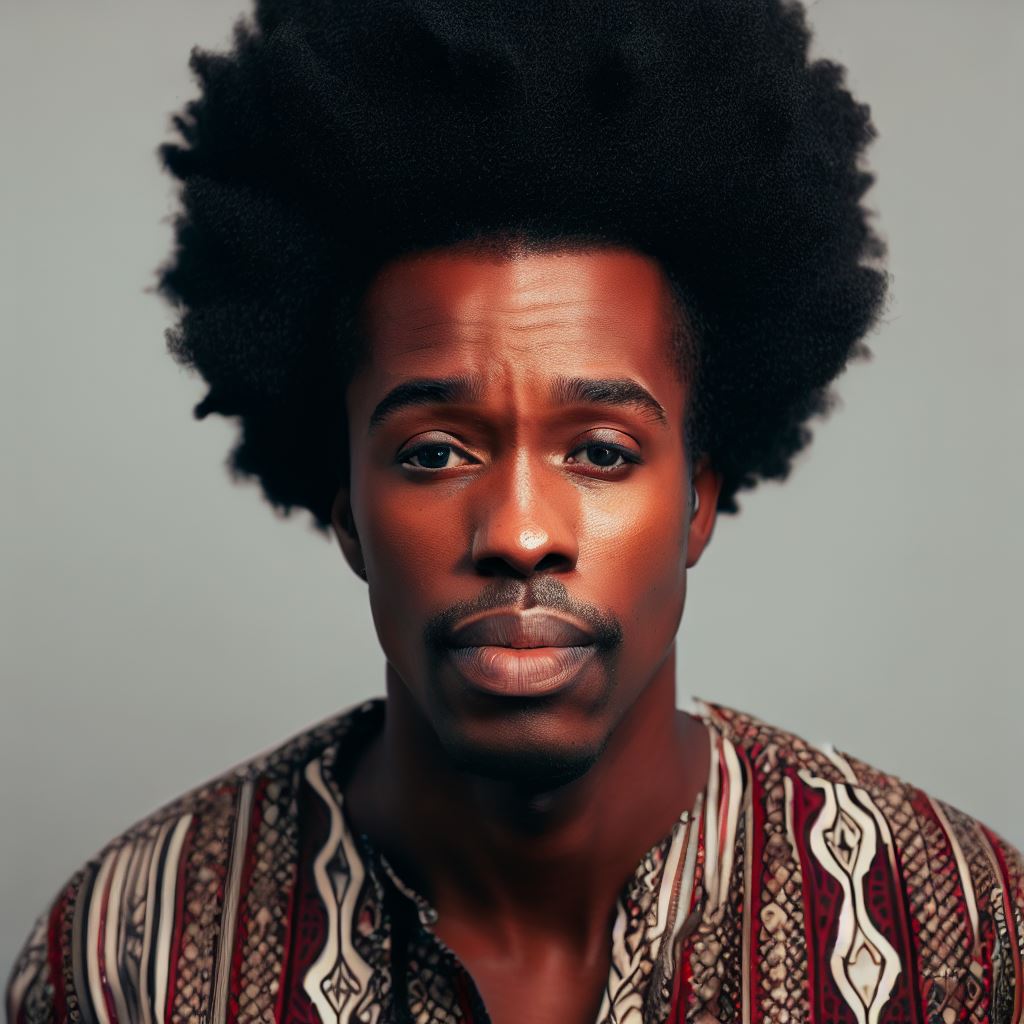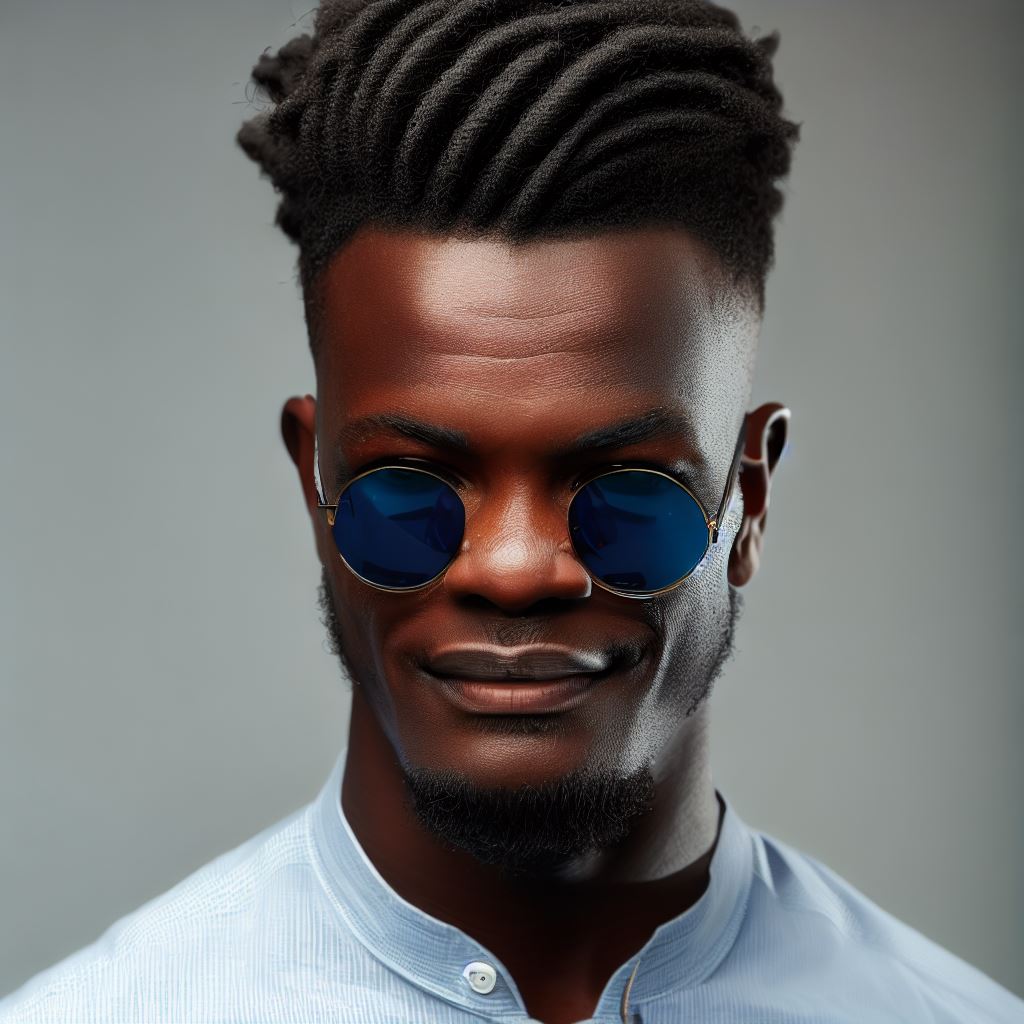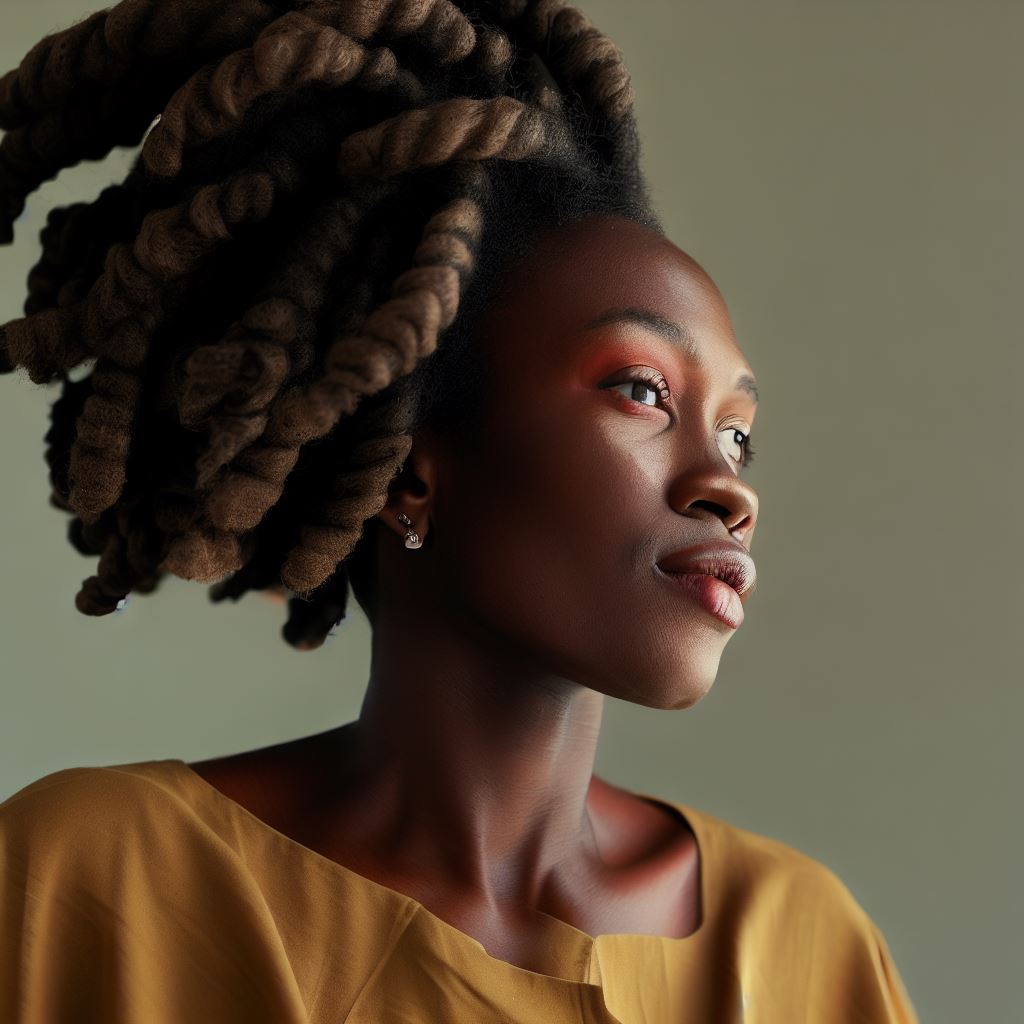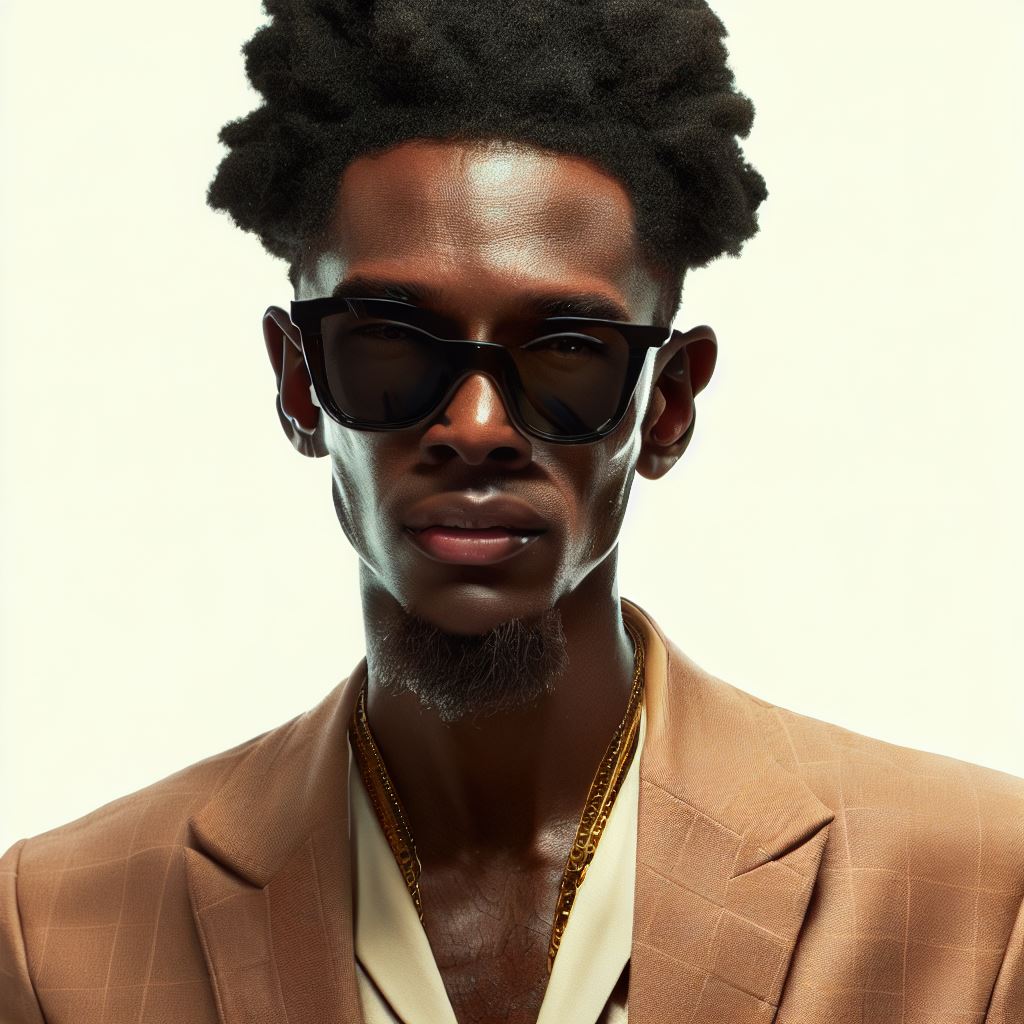Introduction
The influence of culture on film hair styling in Nigeria is a captivating topic that explores the intricate connection between Nigerian culture and the art of hairstyling in film.
Culture on Film Hair Styling in Nigeria is integral, reflecting identity, norms, and diversity.
From Yoruba braids to Igbo scarves, it showcases rich heritage. Nollywood’s global acclaim owes much to this, adding depth and authenticity.
In Nigerian films, hair styling conveys culture, status, and history, engaging viewers and enriching character portrayal.
It challenges norms, celebrating diversity, and influencing fashion worldwide.
This blog section delves into Culture on Film Hair Styling in Nigeria, exploring its significance, evolution, and impact on Nigerian cinema.
Join us on this captivating journey through the world of Nigerian cinema and its cultural hair journey.
Historical Background of Nigerian Film Industry
Nigeria, known as the “Giant of Africa,” has a long and fascinating history when it comes to its film industry.
Nollywood, Nigeria’s film industry, has experienced significant growth and development over the years.
Overview of the growth and development of Nollywood
Nollywood emerged in the 1990s, and since then, it has become the second-largest film industry globally in terms of output.
This rapid growth can be attributed to various factors, including technological advancements, low production costs, and the availability of talented actors and filmmakers.
Cultural significance attached to Nigerian films
The cultural significance attached to Nigerian films cannot be overstated.
Nigerian filmmakers use their movies as a platform to showcase the country’s diverse cultural heritage.
From traditional folklore to modern-day social issues, Nigerian films encapsulate the essence of Nigerian culture.
Nigerian films often feature traditional attires, music, dance, and languages, creating an authentic and immersive experience for the audience.
This cultural immersion has resonated with viewers not only in Nigeria but also across the globe.
Nollywood has gained international recognition, with Nigerian films being screened at international film festivals and winning awards.
This rise in popularity can be attributed to the unique storytelling techniques employed by Nigerian filmmakers.
Nigerian films often depict relatable stories that tackle universal themes such as love, family, and societal challenges.
These stories, coupled with the cultural authenticity portrayed in the films, have captivated audiences worldwide.
The rise in popularity of Nigerian films globally
Furthermore, the globalization of Nigerian films can be attributed to the rise of digital platforms and the increasing accessibility of international audiences.
Streaming platforms like Netflix have made Nigerian films readily available to viewers around the world, exposing them to different cultural perspectives.
In recent years, there has been a surge of interest in Nigerian films, commonly known as “Nollywood movies,” among international audiences.
This increased global recognition has opened doors for collaborations between Nigerian filmmakers and their counterparts in Hollywood and other international film industries.
The influence of Nigerian culture on film hair styling is just one aspect of the larger cultural impact of Nollywood.
Nigerian films continue to shape global perceptions of African cinema, breaking stereotypes and showcasing the country’s unique creativity and storytelling abilities.
In short, the Nigerian film industry, Nollywood, has grown exponentially over the years.
Its cultural significance, as reflected in the unique hair styling choices, has contributed to its increasing popularity worldwide.
Nigerian films continue to play a crucial role in showcasing the country’s rich cultural heritage and captivating audiences with their authentic storytelling.
Read: Notable Nigerian Film Hair Stylists and their Impact
Cultural diversity in Nigeria
Nigeria is known for its vast ethnic groups, languages, and traditions.
These diverse cultures contribute to the rich tapestry of Nigerian film representation.
The importance of cultural diversity in film cannot be overstated.
Influence of cultural diversity on film hair styling
Each ethnic group in Nigeria has unique hair styling traditions and preferences.
When portraying different characters in movies, filmmakers strive for authenticity.
This authenticity extends to choosing appropriate hairstyles that reflect the character’s cultural background.
For example, a Yoruba character would have different hair styling choices compared to an Igbo character.
Filmmakers believe that accurate depiction of culture through hair styling enhances the audience’s immersion.
Furthermore, hair styling can be used as a tool to reinforce storytelling and character development.
Hairstyles can convey a character’s social status, age, marital status, or even signify a specific event or occasion.
By incorporating cultural diversity in hair styling, filmmakers promote inclusivity and representation.
Nigerian audiences appreciate seeing hairstyles that reflect their own cultural heritage on the big screen.
Benefits of embracing cultural diversity in film hair styling
- Authenticity: By accurately representing different cultures, filmmakers create a realistic movie experience.
- Cultural pride: Audiences feel a sense of pride when they see their own cultural traditions being showcased.
- Education: Film becomes a platform for sharing cultural knowledge and educating viewers about different ethnic groups.
- Global recognition: Nigerian films that celebrate cultural diversity attract international attention and acclaim.
- Breaking stereotypes: Incorporating diverse hair styling choices challenges stereotypes and broadens representation.
- Social cohesion: Portraying different cultures fosters understanding and appreciation among diverse communities.
In fact, cultural diversity is a cornerstone of Nigerian society and its influence on film hair styling is undeniable.
By incorporating diverse hairstyles, filmmakers not only create authentic movies but also promote cultural pride and education.
Embracing cultural diversity in film hair styling has numerous benefits for both Nigerian audiences and the global community.
Read: Importance of Hair Stylists in Nigerian Film Production
Traditional Nigerian hairstyles
Traditional Nigerian hairstyles have deep cultural significance and vary depending on ethnic groups.
These hairstyles are a reflection of the rich cultural heritage of Nigeria and have been passed down through generations.
Traditional Nigerian hairstyles depending on ethnic groups
Exploring traditional Nigerian hairstyles entails delving into the various ethnic groups and their specific hair styling traditions.
Each ethnic group has unique hairstyles that are worn for specific occasions and rituals.
Brief history and cultural significance of these hairstyles
The history of these traditional hairstyles can be traced back centuries, with some dating back to ancient times.
These hairstyles were not just for aesthetic purposes but were also used to signify social status, marital status, and even tribal affiliations.
For instance, the Fulani people are known for their intricate braided hairstyles, such as the ‘Fulani braids’ or ‘Fulani knots.’
These hairstyles are characterized by intricate designs and sometimes adorned with cowrie shells, beads, or other decorative accents.
They are worn by both men and women and hold cultural significance within the Fulani community.
Another example is the Igbo women’s ‘Nkemjika’ hairstyle, which consists of multiple layers of tight braids adorned with various ornaments.
This hairstyle is worn by brides during their wedding ceremonies and symbolizes beauty and wealth.
The transition from traditional hairstyles to contemporary ones in films
Over time, the transition from traditional Nigerian hairstyles to contemporary ones in films has been noticeable.
Filmmakers now incorporate modern hairstyles to suit the demands of the audience and the story being told.
However, traditional Nigerian hairstyles still have a significant presence in Nigerian cinema.
They are often used to portray historical or cultural narratives, adding authenticity and depth to the storytelling.
Films set in ancient times or rural areas often showcase characters wearing traditional hairstyles.
Nollywood, Nigeria’s vibrant film industry, has played a crucial role in promoting and preserving traditional Nigerian hairstyles.
By featuring these hairstyles in films, Nollywood not only showcases Nigeria’s cultural diversity but also helps familiarize the younger generation with their heritage.
Additionally, contemporary Nigerian hairstyling in films has also been influenced by Western trends.
With globalization, the lines between traditional and contemporary hairstyles have blurred, resulting in a fusion of different hair styling techniques in Nigerian cinema.
In essence, traditional Nigerian hairstyles are an integral part of the country’s culture and have a significant influence on film hair styling.
Exploring the different ethnic groups and their specific hairstyles provides insight into Nigeria’s rich cultural heritage.
While contemporary hairstyles have become more prevalent in films, traditional hairstyles continue to play a crucial role in preserving Nigerian culture and adding authenticity to storytelling.
Read: A Day in the Life of a Nollywood Film Hair Stylist
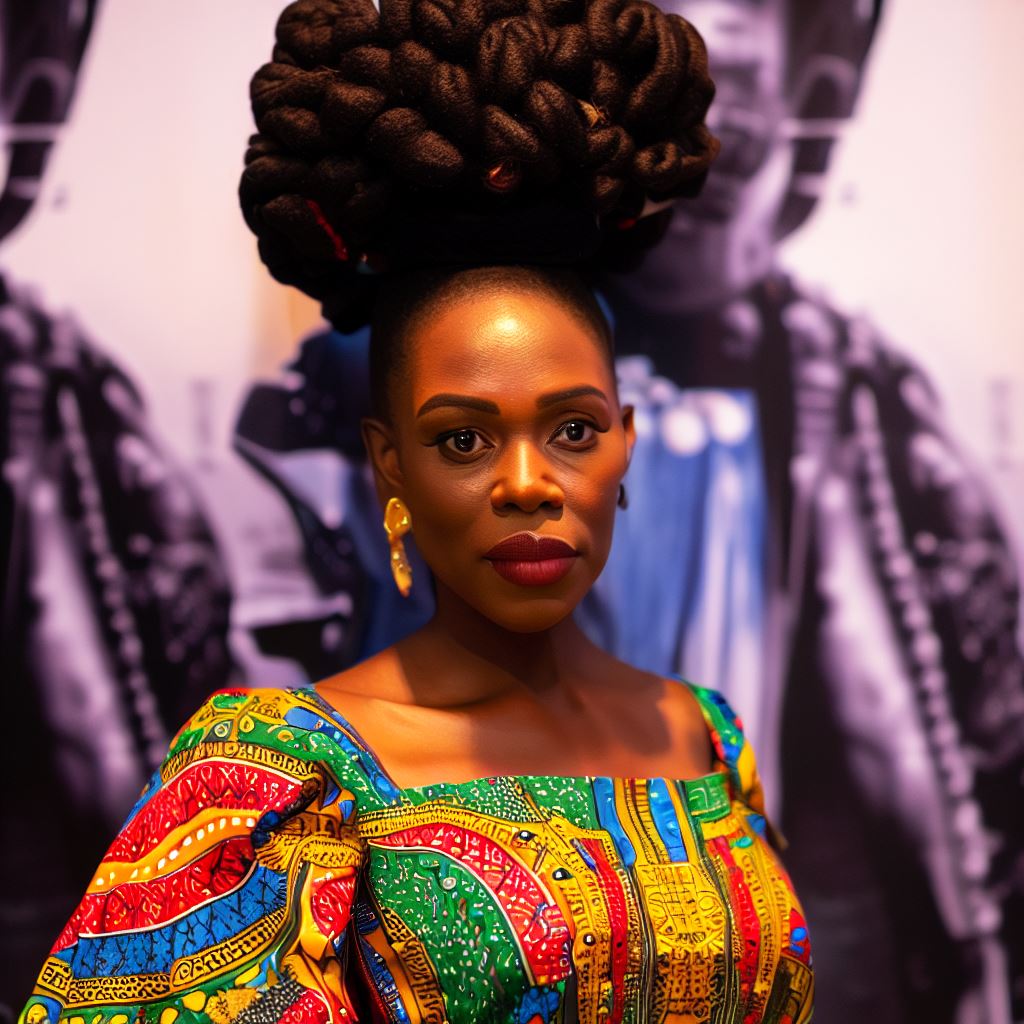
Influence of globalization on Nigerian film hair styling
The influence of Western culture on Nigerian films has had a significant impact in recent years.
With the rise of globalization, the Nigerian film industry, also known as Nollywood, has experienced a shift in its approach to hair styling.
This shift can be seen in the trend of incorporating Western hairstyles into Nollywood movies.
Impact of Western culture on Nigerian films
Western culture, particularly American culture, has heavily influenced Nigerian films.
From fashion to language, Western elements have become more prevalent in Nollywood productions.
This influence extends to the choice of hairstyles depicted in Nigerian films.
Trend of incorporating Western hairstyles in Nollywood movies
In recent years, there has been a noticeable trend in Nollywood movies where characters are seen sporting Western hairstyles.
These hairstyles often include long, straight hair, elaborate updos, or even wigs to mimic hairstyles commonly seen in Western countries.
Cultural implications of this influence
The incorporation of Western hairstyles in Nollywood movies reflects the cultural shift happening in Nigeria.
Traditional Nigerian hairstyles, such as cornrows, braids, or afros, have taken a backseat to these Western-inspired styles.
This shift raises questions about the preservation of Nigerian cultural identity in an increasingly globalized world.
Perception of beauty and self-identity
The adoption of Western hairstyles in Nigerian films can influence how beauty is perceived and can impact individuals’ self-identity.
The portrayal of these hairstyles may lead some Nigerians to believe that Western standards of beauty are superior to their own cultural norms.
Economic factors driving the trend
The globalization of the film industry and the desire to appeal to a broader international audience are key economic factors driving the trend of incorporating Western hairstyles in Nollywood movies.
Filmmakers believe that by using Western hairstyles, their films will appear more modern and attractive to a global market.
Cultural appropriation concerns
The incorporation of Western hairstyles in Nollywood movies also raises concerns about cultural appropriation.
Some argue that the adoption of these hairstyles without proper acknowledgement or understanding of their cultural significance diminishes their value and appropriates elements of Western culture without respect for its origins.
Publish Your Professional Profile, Business or Brand
Showcase your expertise, gain trust, and boost visibility instantly on Professions.ng.
Publish NowBalancing cultural preservation and innovation
While some embrace the incorporation of Western hairstyles in Nollywood movies as a sign of progress and innovation, others argue for the preservation of Nigerian cultural identity.
Finding a balance between embracing global influences and preserving Nigerian cultural heritage is crucial for the film industry and its portrayal of Nigerian culture.
The potential for cultural exchange
On the flip side, the influence of Western culture on Nigerian film hair styling could also provide an opportunity for cultural exchange.
As Nigerian films gain international recognition, audiences from around the world are exposed to traditional Nigerian hairstyles and may develop a greater appreciation for their beauty and significance.
In general, the influence of Western culture on Nigerian film hair styling is a direct consequence of globalization.
While the trend of incorporating Western hairstyles in Nollywood movies reflects the changing dynamics of Nigerian culture, it also raises concerns about cultural preservation and the need to strike a balance between embracing global influences and preserving cultural identity.
Read: The Changing Landscape of Hair Styling in Nigerian Films
Role of Film Hair Stylists in Nigeria
In the Nigerian film industry, also known as Nollywood, hair stylists play a crucial role in bringing characters to life.
Their expertise in creating and styling hair not only enhances the visual appeal of the film but also helps to establish the cultural and societal context in which the story unfolds.
Importance of Hair Stylists in Nigerian Film Industry
- Hair stylists contribute to the authenticity and realism of characters by creating hairstyles that accurately represent the time period and cultural background of the film.
- They help actors transform into their roles by working on their hair, which can greatly impact their overall appearance and portrayal of the character.
- Hair stylists assist in maintaining consistency throughout the film by ensuring that hairstyles remain consistent from scene to scene
- They collaborate with makeup artists and costume designers to create a cohesive overall look for the characters and the film.
Creative Process and Collaboration Between Stylists and Filmmakers
The creative process of a hair stylist in the Nigerian film industry involves close collaboration with filmmakers and other creative professionals.
They work in tandem to bring out the best visual representation of the characters through their hair.
This collaboration includes:
- Discussing the character’s personality, background, and role in the film with the director and costume designer.
- Brainstorming ideas and researching appropriate hairstyles that align with the film’s setting and cultural context.
- Conducting hair trials and tests to ensure the chosen hairstyle works well with the actor’s appearance and the overall visual aesthetic of the film.
- Adapting the chosen hairstyle based on feedback from the director and the actor, making adjustments as necessary.
Noteworthy Film Hair Stylists in Nigeria
There are several talented hair stylists in Nigeria who have made significant contributions to the Nigerian film industry.
Some noteworthy names include:
- Ugo Igbokwe: Known for her skillful execution of traditional Nigerian hairstyles and creative modern interpretations.
- Onilogbo Hakeem: Renowned for his ability to push boundaries and experiment with unique and unconventional hair styling techniques.
- Funmilola Olurinola: Recognized for her attention to detail and ability to create intricate hairstyles that showcase the character’s personality.
These individuals have not only transformed the appearance of characters on screen but have also inspired other hair stylists in Nigeria to push the boundaries of creativity and embrace the cultural significance of hairstyles in film.
In brief, hair stylists play a critical role in Nigerian films, adding authenticity, enhancing characters, and collaborating with filmmakers to create stunning visuals.
Their contributions deserve recognition and appreciation for their immense impact on the cultural representation of Nigerian cinema.
Contemporary trends in film hair styling
Film hair styling in Nigeria has seen a significant evolution in recent years, reflecting the changing cultural landscape and the influence of global trends.
Here, we will explore the current hair styling trends in Nigerian films, the fusion of global and traditional styles, and the role of social media and fashion in shaping these trends.
Presenting current hair styling trends in Nigerian films
Nigerian films have embraced diverse and modern hairstyles, reflecting the fashion-forward nature of the industry.
Trendy hairstyles like box braids, cornrows, locs, and natural hair are commonly seen in Nigerian films.
Hair stylists are experimenting with bold and unconventional styles, pushing the boundaries of creativity.
The representation of different hair textures and styles allows viewers to identify and connect with characters on a deeper level.
The fusion of global and traditional styles
Film hair styling in Nigeria is influenced by both global and traditional hair trends, creating a unique blend.
Nigerian filmmakers are increasingly incorporating traditional African hairstyles, such as Fulani braids and Gele, into their films.
Global trends like wigs, weaves, and extensions are also popular among actors, providing versatility and enhancing character portrayals.
The fusion of these styles showcases the rich cultural heritage of Nigeria while embracing contemporary aesthetics.
The role of social media and fashion in shaping these trends
Social media platforms like Instagram and YouTube have become powerful tools for hair stylists to showcase their work and influence trends.
Influencers and celebrities play a crucial role in popularizing specific hairstyles through their online presence.
Fashion trends also impact film hair styling, as costumes and overall aesthetics need to align for cohesive storytelling.
Collaborations between stylists, fashion designers, and filmmakers ensure that the hair perfectly complements the characters’ appearance.
In review, contemporary trends in film hair styling in Nigeria are marked by a fusion of global and traditional styles.
Nigerian films now showcase a range of diverse and modern hairstyles, promoting inclusivity and cultural pride.
Social media and fashion trends play a significant role in shaping these trends, allowing hair stylists to reach a wider audience and explore new creative possibilities.
As the Nigerian film industry continues to flourish, we can expect further innovation and experimentation in film hair styling, reflecting the ever-evolving cultural landscape.
Cultural impact of film hair styling on society
Film has always been a powerful medium for showcasing different cultures and traditions.
In Nigeria, film hair styling plays a significant role in influencing beauty standards and shaping societal perceptions.
This blog section explores the impact of film hair styling on Nigerian society, discussing its influence on beauty standards, representation, self-perception, and overall cultural appreciation.
How film hair styling influences beauty standards in Nigeria
Film hair styling sets trends and becomes a reference point for beauty standards in Nigeria.
Nigerian films often portray glamorous hairstyles that become popular among the masses.
People try to emulate the hairdos they see in films, contributing to the influence on beauty standards.
The impact of representation and self-perception
Film hair styling provides representation for different Nigerian ethnicities and cultural backgrounds.
Seeing diverse hairstyles on screen helps individuals feel included and represented.
This representation positively impacts self-perception, fostering a sense of pride and belonging.
How film hair styling can generate pride and appreciation for Nigerian culture
Culture on Film Hair Styling in Nigeria portrays the rich diversity of Nigerian culture through various hairstyles, fostering appreciation for heritage.
On-screen representations inspire viewers to embrace their Nigerian identity, promoting cultural pride by highlighting traditional hairstyles.
This cultural influence shapes beauty standards, influences self-perception, and fosters pride in Nigerian culture.
Through diverse hairdos on screen, individuals in Nigeria find inspiration, inclusivity, and a sense of belonging.
In essence, Culture on Film Hair Styling in Nigeria serves as a powerful tool for cultural expression and celebration, impacting both aesthetics and societal identity.
Uncover the Details: Job Market Analysis: Cinematographer Profession in Nigeria
Conclusion
In our blog post, “Culture on Film Hair Styling in Nigeria” is central.
Nigerian filmmakers use it to convey traditions, customs, and social status.
These hairstyles not only capture Nigerian culture but also promote diversity.
Culture in film hair styling is pivotal, adding depth and authenticity.
Explore Nigerian films and the rich hair styling choices they offer.
Recognizing cultural representation fosters respect for Nigerian culture through “Culture on Film Hair Styling in Nigeria.
In a nutshell, Nigerian films serve as a powerful medium for promoting cultural identity and celebrating the beauty of diverse hairstyles.
We should embrace and support these films, not only for their entertainment value but also for the valuable insights they offer into Nigerian culture and traditions.
So, let us immerse ourselves in Nigerian cinema and discover the fascinating world of film hair styling in this vibrant and diverse culture.

